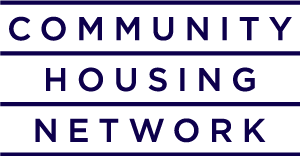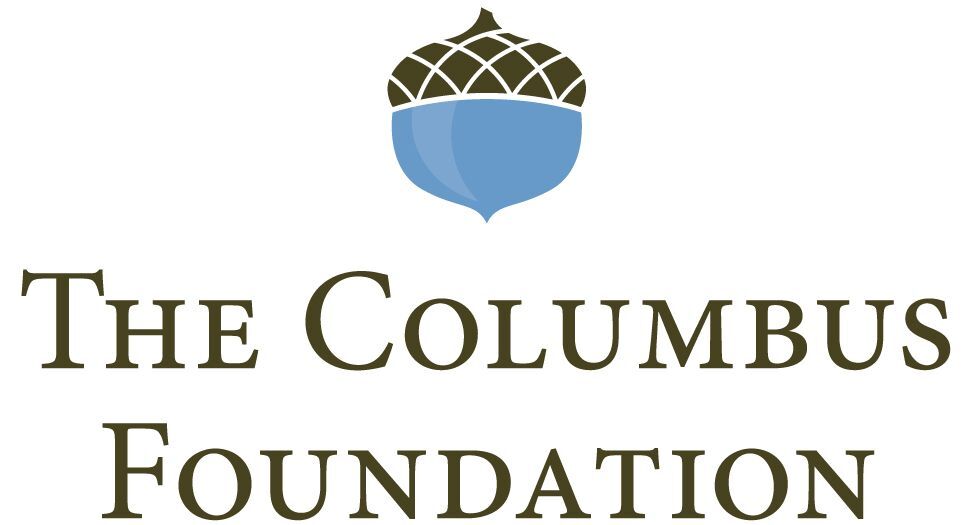Policies
-
Tenant’s Rights and Grievance Procedure (view)
Tenant’s Rights and Grievance Procedure
Community Housing Network tenants have the right to the following:
1. Tenants have the right to be treated with dignity and respect;
2. Tenants have the right to physical privacy;
3. Tenants have the right to be treated with cultural sensitivity;
4. Tenants have the right to self-determination in identifying and setting goals;
5. Tenants are clearly informed, in understandable language, about the purpose of the services being delivered, including tenants who are not literate and/or are limited-English proficient;
6. Tenants have the right to confidentiality and information about when confidential information will be disclosed, to whom and for what purpose, as well as the right to deny disclosure;
7. Tenants have the right to reasonable access to records concerning their involvement in the program;
8. Tenants have the right to have an advocate present during appeals and grievance processes;
9. Tenants have the right to choose their own housing or to reject substandard housing.
As a consumer of mental health services, tenants are also entitled to additional rights under the Ohio Administrative Code § 5122-26-18:
1. The right to be treated with consideration and respect for personal dignity, autonomy and privacy;
2. The right to reasonable protection from physical, sexual or emotional abuse and inhumane treatment;
3. The right to receive services in the least restrictive, feasible environment;
4. The right to participate in any appropriate and available service that is consistent with an individual service plan (ISP), regardless of the refusal of any other service, unless that service is a necessity for clear treatment reasons and requires the person's participation;
5. The right to give informed consent to or to refuse any service, treatment or therapy, including medication absent an emergency;
6. The right to participate in the development, review and revision of one's own individualized treatment plan and receive a copy of it;
7. The right to freedom from unnecessary or excessive medication, and to be free from restraint or seclusion unless there is immediate risk of physical harm to self or others;
8. The right to be informed and the right to refuse any unusual or hazardous treatment procedures;
9. The right to be advised and the right to refuse observation by others and by techniques such as one-way vision mirrors, tape recorders, video recorders, television, movies, photographs or other audio and visual technology. This right does not prohibit an agency from using closed circuit monitoring to observe seclusion rooms or common areas, which does not include bathrooms or sleeping areas;
10. The right to confidentiality of communications and personal identifying information within the limitations and requirements for disclosure of client information under state and federal laws and regulations;
11. The right to have access to one's own client record unless access to certain information is restricted for clear treatment reasons. If access is restricted, the treatment plan shall include the reason for the restriction, a goal to remove the restriction, and the treatment being offered to remove the restriction;
12. The right to be informed a reasonable amount of time in advance of the reason for terminating participation in a service, and to be provided a referral, unless the service is unavailable or not necessary;
13. The right to be informed of the reason for denial of a service;
14. The right not to be discriminated against for receiving services on the basis of race, ethnicity, age, color, religion, gender, national origin, sexual orientation, physical or mental handicap, developmental disability, genetic information, human immunodeficiency virus status, or in any manner prohibited by local, state or federal laws;
15. The right to know the cost of services;
16. The right to be verbally informed of all client rights, and to receive a written copy upon request;
17. The right to exercise one's own rights without reprisal, except that no right extends so far as to supersede health and safety considerations;
18. The right to file a grievance;
19. The right to have oral and written instructions concerning the procedure for filing a grievance, and to assistance in filing a grievance if requested;
20. The right to be informed of one's own condition; and,
21. The right to consult with an independent treatment specialist or legal counsel at one's own expense.
Grievance Contact Information and Procedure
1. Contact Information Name: Tenant Rights Officer
Address: Community Housing Network
1680 Watermark Drive Columbus, OH 43215
Availability: Monday - Friday, 9:00AM - 4:00PM
Telephone: 614-487-6724, Fax 614-487-0405
a. The Tenant Rights Officer is available to explain any aspect of tenant's rights policy and the grievance procedure upon request during normal business hours. The Tenant Rights Officer is an impartial decision-maker.
b. If a grievance is against the Tenant Rights Officer, contact the CHN Grievance Committee:
CHN Grievance Committee
Community Housing Network
1680 Watermark Drive
Columbus, OH 43215
Availability: Monday - Friday, 8:00AM - 4:00 PM
Telephone: 614-487-6731, Fax 614-487-0405
2. Purpose The purpose of this policy is to provide a formal process for tenants leasing Community Housing Network housing or applicants seeking Community Housing Network housing to make problems and disputes known and to seek resolution through the grievance process.
3. Distribution Distribution of the Tenant Rights Policy will be made at the time of lease signing, annually and upon a tenant's request.
a. In a crisis or emergency situation, the tenant or applicant shall be verbally advised of at least the immediately pertinent rights, such as the right to consent to or to refuse the offered agreement and consequences of that agreement or refusal. Written copy and full verbal explanation of the Tenant Rights Policy may be delayed to a subsequent meeting.
b. Tenants may have a copy and explanation of the Tenant Rights Policy upon request. A member of CHN staff will assist the tenant, if desired by the griever and/or represent the tenant at a hearing if requested.
c. Community Housing Network will post a copy of the Tenant Rights Policy in a conspicuous location in each building it operates.
d. There are provisions for all staff, including administrative and support staff to immediately advise any tenant about the right to file a grievance. Staff are willing to assist tenants in the completion of the grievance form, if necessary.
4. Grievance Procedure When a tenant believes an issue has not been satisfactorily resolved through the normal communication, the following grievance procedure is followed:
a. All staff, including administrative and support staff are to immediately advise any tenant about the tenant rights officer and the right to file a grievance. Staff are willing to assist tenants in the completion of the grievance form, if necessary.
b. Tenants also have the option of filing a grievance outside of the organization.
c. Within three business days of receiving the grievance, the Tenant Rights Officer will provide a written acknowledgment of receipt of the grievance to the tenant and will include the date the grievance was received; a summary of the grievance; an overview of the investigation process; a timetable for completion of investigation and notification of resolution; and, contact information for the Tenant Rights Officer.
d. Tenant Rights Office consults with the Grievance Committee as needed. A decision must be made within 20 days of receiving the grievance.
e. Tenant Rights Officer will provide written notification of the resolution to the resident, or the griever, if other than the resident.
f. If the tenant is not satisfied with the decision of the Tenant Grievance Committee, the tenant may file a written appeal of the decision with the Chief Operating Officer and/or request a hearing. The Chief Operating Officer will respond within three days.
g. If the tenant is not satisfied with resolution of the grievance, the tenant may file a written appeal of the decision with the Chief Executive Officer. The Chief Executive Officer or designee will respond within three days
h. The tenant has the option of filing a grievance with outside organizations, which include the following:
Ohio Department of Mental Health and Addiction Services
Disability Rights Ohio
200 Civic Center Drive, Suite 300
Columbus, Ohio 43215
(614)466-7265
Franklin County ADAMH Board
447 E. Broad Street
Columbus, Ohio 43215
(614) 224-1057
U.S. Department of Health and Human Services Office for Civil Rights
233 N. Michigan Ave., Suite 240
Chicago, Illinois 60601
(800) 368-1019
Legal Aid Society of Columbus
1108 City Park Avenue
Columbus, Ohio 43206
(614)224-8374
U.S. Department of Housing and Urban Development
Chicago Regional Office
Ralph H. Metcalfe Federal Building
77 West Jackson Boulevard, Room 2101
Chicago, Illinois 60604-3507
(800) 765-9372
5. Monitoring
a. Community Housing Network will maintain records of client grievances for two years from the date of resolution. The records of client grievances include a copy of the grievance; documentation reflecting process used and resolution/remedy of the grievance; and, documentation, if applicable, of extenuating circumstances for extending the time period for resolving the grievance beyond twenty calendar days.
b. The Tenant Rights Officer will maintain records of all grievances, meetings and decisions.
c. Community Housing Network submits an quarterly summary reports to the Alcohol, Drug and Mental Health Board of Franklin County, including the number and type of complaints and grievances received. Community Housing Network records are available for review by the ADAMH Board Franklin County upon request.
TO ENSURE AVAILABLITY, THIS PROCEDURE WILL BE POSTED IN THE WAITING AREA OF THE OFFICES OF COMMUNITY HOUSING NETWORK AND AT ALL CHN SERVICE PROVIDING FACILITIES
-
Privacy Policy (View)
Privacy and Data Security Policy
At this time, Community Housing Network does not collect personal information from visitors to our website.
What this Policy Covers
1. This document describes the privacy policy and practices of the Community Housing Network. Our main office is at 1680 Watermark Drive, Columbus, OH, 43215.
2. This policy covers the collection, use, and maintenance of protected personal information for clients of agencies affiliated with Community Housing Network (CHN).
3. Protected Personal Information (PPI) is any personal information we maintain about a client that:
a. allows identification of an individual directly or indirectly;
b. can be manipulated by a reasonably foreseeable method to identify a specific individual; or
c. can be linked with other available information to identify a specific client.
4. We adopted this policy because the Department of Housing and Urban Development issued standards for Homeless Management Information Systems. We intend our policy and practices to be consistent with those standards. See 69 Federal Register 45888 (July 30, 2004).
5. This policy informs our clients, our staff, and others how we process personal information. We follow the policy and practices described in this privacy policy.
6. We may amend our policy or practices at any time. Amendments may affect PPI that we obtained before the effective date of the amendment.
7. We give a written copy of this privacy policy to any individual who asks for it.
8. We maintain a copy of this policy on our website
How and Why We Collect PPI
1. We collect PPI only when appropriate to provide services or for another specific purpose of our organization or when required by law. We may collect information for these purposes:
a. to provide individual case management;
b. to produce aggregate-level reports regarding use of services;
c. to track individual program-level outcomes;
d. to identify unfilled service needs and plan for the provision of new services;
e. to conduct research for consulting and/or educational purposes; and
f. to accomplish any and all other purposes deemed appropriate by CHN.
2. We only use lawful and fair means to collect PPI.
3. We normally collect with the knowledge or consent of our clients. If you seek our assistance and provide us with PPI, we assume that you consent to the collection of information described in this policy.
4. We may also receive PPI about you from:
Alvis House, Huckleberry House, The Salvation Army, Community Housing Network, Lutheran Social Services/Faith Mission/Faith Housing, U.S. Department of Veteran’s Affair,s Columbus Metropolitan Housing Authorit,y Maryhaven, Volunteers of America of Greater Ohi,o Equitas Health, National Church Residences, YMCA, Gladden Community House, Netcare Access, YWCA, Homes for Families, Southeast, Inc.
5. We post a sign at our intake desk or other location explaining the reasons we ask for PPI. The sign says:
We collect information about homeless individuals from agencies for reasons that are discussed in our privacy policy. We may be required to collect some personal information by law or by organizations that give us money to operate this program. Other personal information that we collect is important to run our programs, to improve services for homeless individuals, and to better understand the needs of homeless individuals. We only collect information that we consider to be appropriate. If you would like to see our privacy policy, our staff will provide you with a copy.
How We Use and Disclose PPI
1. We use or disclose PPI for activities described in this part of the policy. We may or may not make any of these uses or disclosures of your PPI. We assume that you consent to the use or disclosure of your PPI for the purposes described below and for other uses and disclosures that we determine to be compatible with these uses or disclosures:
a. to provide or coordinate services to individuals;
b. for functions related to payment or reimbursement for services;
c. to carry out administrative functions such as legal, audits, personnel, oversight and management functions;
d. to create de-identified (anonymous) information;
e. when required by law to the extent that use or disclosure complies with and is limited to the requirements of the law;
f. to avert a serious threat to health or safety if:
i. we believe that the use or disclosure is necessary to prevent or lessen a serious and imminent threat to the health or safety of an individual or the public; and
iii. the use or disclosure is made to a person reasonably able to prevent or lessen the threat, including the target of the threat.
g. to report about an individual we reasonably believe to be a victim of abuse, neglect or domestic violence to a governmental authority (including a social service or protective services agency) authorized by law to receive reports of abuse, neglect or domestic violence in any of the following three circumstances:
i. where the disclosure is required by law and the disclosure complies with and is limited to the requirements of the law;
ii. if the individual agrees to the disclosure; or
iii. to the extent that the disclosure is expressly authorized by statute or regulation and either of the following are applicable:
A. we believe the disclosure is necessary to prevent serious harm to the individual or other potential victims; or
B. if the individual is unable to agree because of incapacity, a law enforcement or other public official authorized to receive the report represents that the PPI for which disclosure is sought is not intended to be used against the individual and that an immediate enforcement 4 {H0943591.2 } activity that depends upon the disclosure would be materially and adversely affected by waiting until the individual is able to agree to the disclosure;
when we make a permitted disclosure about a victim of abuse neglect or domestic violence, we will promptly inform the individual who is the victim that a disclosure has been or will be made, except if:
(i) we, in the exercise of professional judgment, believe informing the individual would place the individual at risk of serious harm; or
(ii) we would be informing a personal representative (such as a family member or friend), and we reasonably believe the personal representative is responsible for the abuse, neglect or other injury, and that informing the personal representative would not be in the best interests of the individual as we determine in the exercise of our professional judgment.
h. to a law enforcement official for a law enforcement purpose (if consistent with applicable law and standards of ethical conduct) under any of these circumstances:
i. in response to a lawful court order, court-ordered warrant, subpoena or summons issued by a judicial officer, or a grand jury subpoena;
ii. if the law enforcement official makes a written request for PPI that:
A. is signed by a supervisory official of the law enforcement agency seeking the PPI;
B. states that the information is relevant and material to a legitimate law enforcement investigation;
C. identifies the PPI sought;
D. is specific and limited in scope to the extent reasonably practicable in light of the purpose for which the information is sought; and
E. states that de-identified information could not be used to accomplish the purpose of the disclosure.
iii. if we believe in good faith that the PPI constitutes evidence of criminal conduct that occurred on our premises;
iv. in response to an oral request for the purpose of identifying or locating a suspect, fugitive, material witness or missing person and the PPI disclosed consists only of name, address, date of birth, place of birth, social security number and distinguishing physical characteristics; or
v. if:
A. the official is an authorized federal official seeking PPI for the provision of protective services to the President or other persons authorized by 18 U.S.C. 3056, or to foreign heads of state or other persons authorized by 22 U.S.C. 2709(a)(3), or for the conduct of investigations authorized by 18 U.S.C. 871 and 879 (threats against the President and others); and
B. the information requested is specific and limited in scope to the extent reasonably practicable in light of the purpose for which the information is sought.
i. to comply with government reporting obligations for HMIS and for oversight of compliance with HMIS requirements.
j. to third parties for the following purposes:
i. to permit other systems of care to conduct data matches (i.e., to determine if you are also utilizing services from such other systems of care); and
ii. to permit third party research firms and/or evaluators to perform research and evaluation services in connection with the programs administered by CHN and the other agencies;
provided that before PPI is disclosed under this subsection, the third party that will receive such PPI and use it as permitted above must first execute a Data Use & Disclosure Agreement requiring such third party to comply with all applicable laws and regulations, including the privacy standards and disclosure provisions contained in the Department of Housing and Urban Development Homeless Management Information Systems; Data and Technical Standards Final Notice (see 69 Federal Register 45888 (July 30, 2004)), which such standards and provisions are reflected herein.
2. Before we make any use or disclosure of your PPI that is not described here, we seek your consent first.
How to Inspect and Correct PPI
1. You may inspect and have a copy of your PPI that we maintain. We will offer to explain any information that you may not understand.
2. We will consider a request from you for correction of inaccurate or incomplete PPI that we maintain about you. If we agree that the information is inaccurate or incomplete, we may delete it or we may choose to mark it as inaccurate or incomplete and to supplement it with additional information.
3. We may deny your request for inspection or copying of PPI if:
a. the information was compiled in reasonable anticipation of litigation or comparable proceedings;
b. the information is about another individual (other than a health care provider or homeless provider);
c. the information was obtained under a promise of confidentiality (other than a promise from a health care provider or homeless provider) and if the disclosure would reveal the source of the information; or
d. disclosure of the information would be reasonably likely to endanger the life or physical safety of any individual.
e. inability to establish individual’s identity.
4. If we deny a request for access or correction, we will explain the reason for the denial. We will also include, as part of the PPI that we maintain, documentation of the request and the reason for the denial.
5. We may reject repeated or harassing requests for access to or correction of PPI.
Data Quality
1. We collect only PPI that is relevant to the purposes for which we plan to use it. To the extent necessary for those purposes, we seek to maintain only PPI that is accurate, complete and timely.
2. We are developing and implementing a plan to dispose of PPI not in current use seven years after the information was created or last changed. As an alternative to disposal, we may choose to remove identifiers from the PPI.
3. We may keep information for a longer period if required to do so by an applicable statute, regulation, contract or other requirement.
Complaints and Accountability
1. We accept and consider questions or complaints about our privacy and security policies and practices.
2. All members of our staff (including employees, volunteers, affiliates, contractors and associates) are required to comply with this privacy policy. Each staff member must receive and acknowledge receipt of a copy of this privacy policy.








